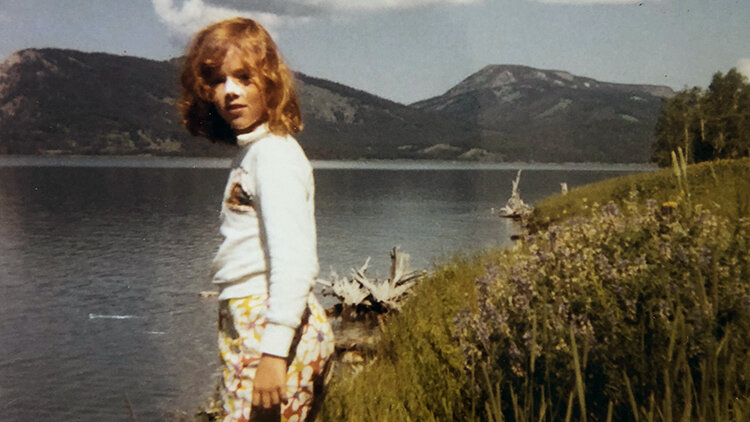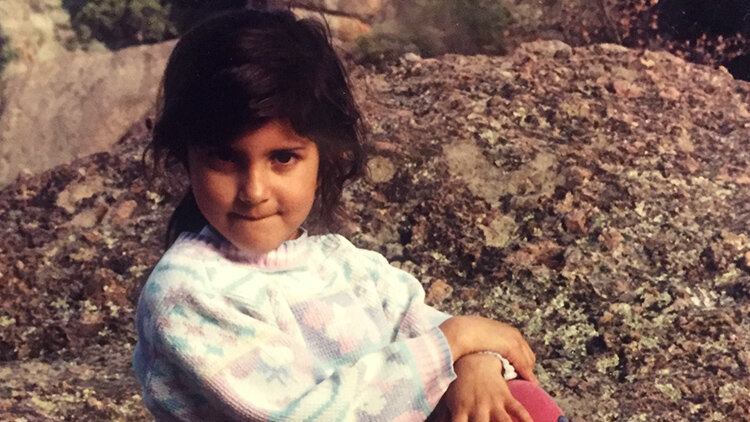Sé Sullivan & Mauro Sifuentes
Our Directors' Statement about the film
Sé Sullivan, born “Terri Anne” in Santa Monica, California, is an Irish-American settler, a scholar-educator, an artist, and a survivor of conversion therapy. As a child, Sé was sent to the Gender Identity Research Clinic at UCLA where a team of clinical researchers worked to impose rigid ideals of girlhood. Sé is one of the few to public claim this experience, and is likely the only one to access official transcripts of their own conversion therapy sessions that form part of the data set used to develop the Gender Identity Disorder (now called “Gender Dysphoria”) diagnosis introduced in the 1980 edition of the Diagnostic and Statistical Manual of Mental Disorders (DSM-III), published by the American Psychiatric Association. Leading up to the film, Sé created a university-toured art installation and gallery talk, as they advocate for art and storytelling that help others visualize ideas that too-often remain trapped in academic texts and archives. Mauro Sifuentes, born “Maureen Nicole,” is a mixed-Latinx scholar and advocate, with Indigenous ancestry in what is now called Mexico and the U.S. borderlands. Among their ancestors, there are survivors of forced sterilization and other eugenic medical experiments in California, and Mauro sees their life and existence as nothing short of a miracle. They have lived a life of many genders – none truer than the rest – and strive to help young queer and trans people from diverse cultural backgrounds learn from history to heal the past, present, and future.
During an era of debates over conversion therapy and debates over trans youth accessing affirmative therapies, the filmmakers see an urgent need to contextualize public discussion in history, intergenerational wisdom, and activism. WE JUST WANT TO BE addresses the reality that queer and trans people often experience immense social and generational isolation. Sé and Mauro provide an example of how we need others to understand our own stories, mirroring how people across the United States continue to strain under the fractures of partially told histories. Together, the filmmakers delve into broader histories of gendered violence in medicine and psychiatry in 20th century California, in part to understand how this violence persists into the present, including through continued conversion therapy and in newer affirmative therapies.
Mauro's grandparents, who met in Los Angeles.
While this unlikely friendship forces Sé and Mauro to confront differences in their lived experience, they also share something incredibly important: both came-of-age in multiracial, multicultural, lesbian, queer, butch, and feminist women’s communities. This shapes their storytelling, their artistic and political commitments, as well as how they experience trans life and identity. From this, Sé and Mauro challenges the trope of “trans-as-traitors” to feminist and queer communities, as well as the idea that queer and trans elders are irrelevant to current struggles. The pair shares a commitment to ethics: Sé, in foregrounding the voices of queer and trans people of color, and Mauro, in foregrounding the voices of queer and trans elders and youth.
Ultimately, WE JUST WANT TO BE is a contemporary questioning of transgender conversion therapy. It is also a polyvocal elegy of queer and trans resistance, where the filmmakers revisit questions of freedom, community, and survival. The title speaks to the simple, yet profound, words of Sé’s eight-year-old self, who was asked how they thought boys become boys, and girls become girls: “I don’t know – we just want to be what we want to be.” We are adding a single square to our collective quilt, a story of two people where each “I” represents and surrounds a “we” that has been lost, or that has not lived on. This is a “we” who have – in whatever form – survived the violence of gender, race, and their policing, into the present.
Sé as a baby, with their parents in Santa Monica.
WE JUST WANT TO BE allows us to slow down and thoughtfully revisit currently hotly-debated issues by foregrounding the stories of two individuals as entry points into the broader social and historical terrain that shapes the lives of trans youth today. The film curates archival materials from Los Angeles of the 1960s and 70s to paint portraits of gendered life in the time and place where “gender identity,” now a popular concept, was first created by psychiatric researchers. Without this history, we are limited in our capacity to honor the deepest needs of trans youth today. WE JUST WANT TO BE addresses this gap in intergenerational knowledge by combining evocative personal testimony with rigorous archival research, as well as bringing together expert scholars and activists such as legal advocate Dean Spade and historian Susan Stryker. Braiding together Sé and Mauro’s voices, viewers are welcomed into an interracial and intergenerational dialogue about trans rights, providing an original and thoughtful perspective on entrenched narratives that limit debates over trans youth.
Mauro Sifuentes & Sé Sullivan
Writers/Producers/Directors




